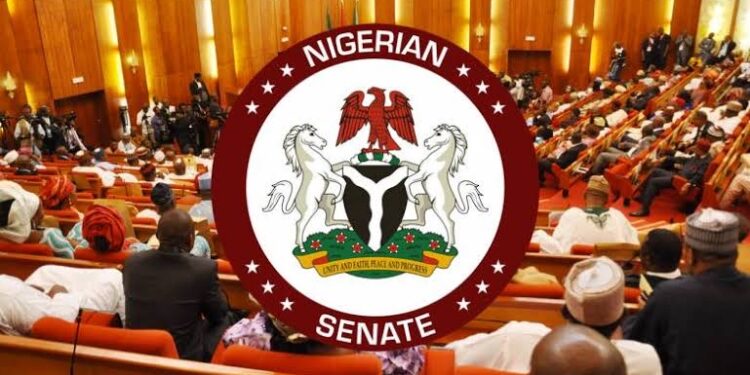- The Senate advances a bill proposing a single non-renewable six-year term for the governor and deputy governors of the CBN
- Proposed legislation includes the appointment of an acting governor in case of vacancy and the establishment of a Chief Compliance Officer
The Senate has advanced a bill proposing a significant change in the tenure of the governor and deputy governors of the Central Bank of Nigeria (CBN). Sponsored by Senator Mukhail Adetokunbo Abiru and co-sponsored by 41 others, the bill aims to amend Section 8(2) of the CBN Act.
Currently, the CBN Act allows the governor and deputy governor of the apex bank a tenure of five years, with the possibility of re-appointment for another five-year term. However, the proposed amendment suggests a single non-renewable term of six years for both positions.
This move comes after more than 16 years without any amendment to the 2007 CBN Act, despite significant changes in the bank’s operations and its challenges in implementing monetary policies.
Among the proposed legislation’s key provisions is the President’s appointment of an acting governor in case of a vacancy due to death or resignation. Additionally, if a substantive appointment is made, it will be for a fresh term rather than continuing the previous governor’s or deputy governor’s tenure.
Furthermore, the bill seeks to establish the position of a Chief Compliance Officer within the apex bank, with a rank equivalent to that of a deputy governor. This officer would report directly to the board and could be summoned to appear before relevant committees of the National Assembly.
Senator Abiru emphasized the importance of the proposed changes, particularly in addressing issues such as currency restructuring and ensuring monetary stability. The bill aims to provide a clear framework for currency replacement, requiring the bank to give at least one year’s notice before introducing new legal tender and ensuring a two-year transition period for both old and new currencies to be accepted.
If passed into law, the bill is expected to strengthen the CBN’s ability to ensure monetary stability, issue legal tender, maintain external reserves, promote a sound financial system, and provide economic advice to the federal government.
